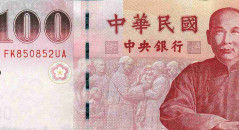
The Taiwanese media is both free and boisterous, and there are a large number of competing newspapers and cable channels, though unfortunately quality is somewhat lacking; internet and telephone service is easy to arrange
Mobile Phones
Pre-pay SIM cards are available from convenience stores and can be topped up by phone, online, or in a store. Post-pay services have some restrictions, for example with Chunghwa Telecom a local is usually required to guarantee your application. Taiwan Mobile will sometimes allow resident foreign nationals to sign up for a contract without a guarantor, though you may have to talk to a manager to get this done. Other providers include Asia Pacific Telecom, FarEasTone, First International Telecom, and Vibo Telecom. The major networks all offer 3G data services, with a choice of limited-download options or unlimited data (costing NT$800–900). If you are bringing a phone with you from the US, be aware that Taiwan runs on the GSM network, so a phone from AT&T will not work here unless it is dual-band.
Landline Phones
Signing up for a land line requires a local citizen to guarantee your contract. Short-term residents may be better advised to make do with a pay-as-you-go mobile phone instead because of the hassle and contract length.
To dial within the same area code from a land line simply dial the seven or eight-digit number. For numbers outside your area code, you will need to prefix the number with the correct area code:
- 02 Taipei, New Taipei, Keelung
- 03 Taoyuan, Hsinchu, Yilan, Hualian
- 037 Miaoli
- 04 Taichung, Zhanghua
- 049 Nantou
- 05 Yunlin, Jiayi
- 06 Tainan, Penghu
- 07 Kaohsiung
- 08 Pingdong
- 082 Jinmen Islands
- 0826 Wuqiu Island
- 0836 Mazu Islands
- 089 Taidong
If you are calling from a mobile phone you will always need to use the area code to call a land line.
To dial internationally you must first dial an international access code (either 002, 009, or 019), then the country code, then the number of the party you want to call. The rates differ for international calls depending on the access code used and any special offers running at the time, so check with Chunghwa Telecom for details when you arrive.
Internet Service
A few different options are available for getting connected to the web. Most will opt for a home connection, although mobile internet packages are also available.
The most popular choice for home internet is Hinet, a branch of the national telecommunications carrier Chunghwa Telecom. A 10 Mbps download/1 Mbps upload connection will cost around NT$800 per month, with a year-long contract required. Using the Hinet package also offers the possibility of getting their MOD TV package into the bargain (see TV section). There are a couple of other ISPs who offer comparable internet-only packages, including K-Bro and Seed Net.
Your local cable TV provider will also offer internet services through a cable modem. These packages can be cheaper than Hinet, although users seem to report spottier connections and using their service will also mean you cannot take advantage of Hinet’s MOD internet TV package.
Television
Commonly referred to as “the fourth channel” (there are three terrestrial channels), cable television is ubiquitous in Taiwan, and costs around NT$550 per month. Each area has one monopoly provider, so the choice of cable company is easy. English language programming is fairly limited, with CNN normally the only news channel available (BBC World is sometimes added in a few areas). There are a few movie channels showing Hollywood releases, in English with Chinese subtitles, National Geographic, and a couple of sports channels primarily featuring baseball and basketball. Formosa TV also offers a daily bulletin of local and international news in English. Other channels available (in local languages) cover 24-hour news, entertainment, religious affairs, culture, popular music, business, and children’s programming.
An option also available to customers of Hinet’s internet service is Media On Demand (MOD). There are a variety of packages available from NT$89–NT$289 per month, offering access to a number of channels not available through cable TV. These include a larger set of English-language channels, with over 20 available, including NatGeo Adventure, NatGeo Wild, ESPN HD, Bloomberg, BBC Entertainment, BBC Lifestyle, Fox HD, SiFy, Al-Jazeera, and more. Many are available in High Definition. There are also a few channels available in other languages, including French, German, and Vietnamese. For those who need a larger dose of TV from home, there are a couple of options for satellite television. DishHD offers 49 channels, with around half in HD quality, for NT$699 a month, though the MOD package from Hinet seems to offer a better deal unless DishHD has a channel you really can’t miss out on.
English-language Media
There are two English-language newspapers available in Taiwan; the China Post and the Taipei Times. The China Post has been in print for 60 years, and the editorial line is pro-blue, meaning that it favours the ruling Chinese Nationalist Party (KMT) and sees Taiwan as part of China. The Taipei Times was established in 1999, and is largely pro-green, more sympathetic to the opposition Democratic Progressive Party and supportive of Taiwanese independence from China. Both newspapers carry a selection of international news, and are readily available from convenience stores around the country. A third paper, the Taiwan News, stopped printing in 2010 and is now available online only.
A number of magazines are also available on a weekly or monthly basis. The government-backed Taiwan Panorama, Taiwan Journal, and Taiwan Review all offer perspectives on different aspects of life in Taiwan, including articles on history, politics, economics, the arts, and everything else pertaining to life on the island. For independent sources, the Community Services Center in Taipei publishes Centered on Taipei, a free monthly lifestyle magazine, while the American Chamber of Commerce issues Topics, which it describes as “a source of balanced, reliable, and insightful news and analysis on issues of concern to Taiwan’s business community.” The respected Chinese-language business magazine Commonwealth has recently started offering articles in English, though only online. There are also listings magazines published by the Compass Group in Taichung, with Taiwan Fun covering the north of the island, Compass reporting on central Taiwan, and FYI South for the southern portion.
Guide Books
There are now a few excellent guide books available that cover Taiwan. The most popular and longest-running is Lonely Planet Taiwan, which for years was the only worthwhile choice. Nowadays though there are a quite a number in print, including Taiwan: The Bradt Travel Guide, Rough Guide to Taiwan, National Geographic Traveler: Taiwan, and Taiwan A to Z: The Essential Cultural Guide. Also worthy of note is Do’s and Don’ts in Taiwan, by Tainan-based writer Steven Crook, who besides authoring the Bradt Travel Guide mentioned above is also responsible for a great little iPhone app called Taiwan for Culture Vultures. One last title worth mentioning for its flavour of Taiwan, while not strictly a guide book, is John Ross’s wonderful Formosan Odyssey, a travelogue of his round-the-island hike in the wake of the huge 1999 “921” earthquake.
Photo by billushana1.



